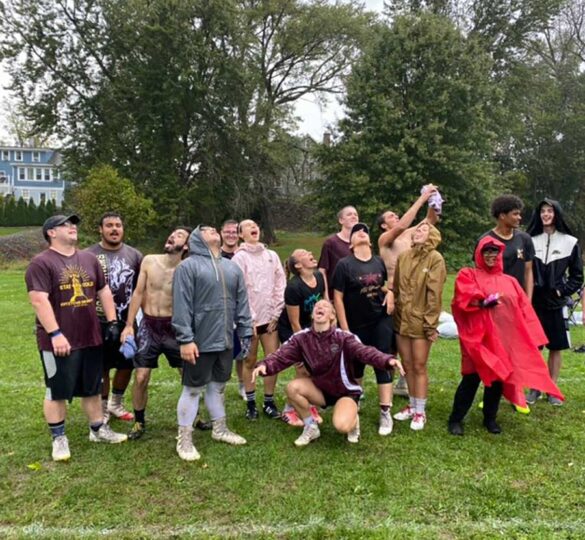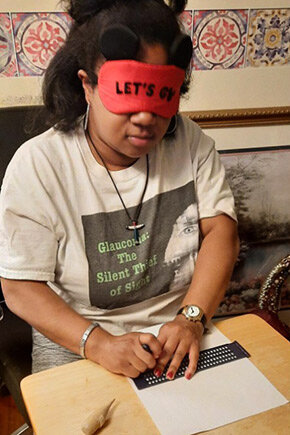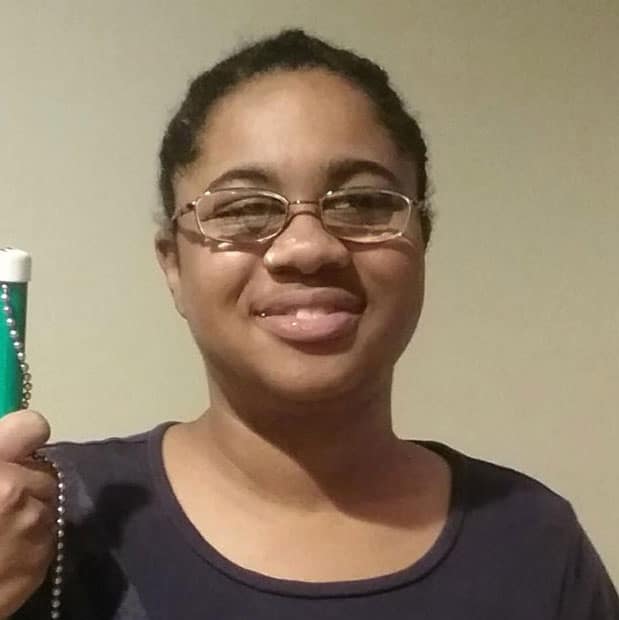5 Helpful Tips for College Students with Glaucoma
Jasmyn Polite was diagnosed with glaucoma at age 9. Now as a college student she has advice for other young people with glaucoma.

As a college student with glaucoma, I have been through many experiences with managing this condition while studying for 7 years in college. I am currently in my senior year at Kutztown University studying visual impairment to become a Braille educator and transcriber.
With glaucoma I have faced issues such as being able to pay for my eye drops when my insurance can’t cover it, taking breaks when I have eye fatigue from a long paper, and taking my eye drops in between my classes. In this article, I would like to offer advice to college students with glaucoma that are having a hard time managing this condition and college at the same time.
1. Be Able to Purchase Your Eye Drops While Paying for College Expenses
We all know how expensive college can be. Just imagine having to manage a chronic medical condition and getting through college at the same time. When you are in college as a glaucoma patient, you will have more responsibilities than the average college student because you will have to take your eye drops every day. Make sure that there is a local pharmacy near your college such as CVS, Rite Aid, Walgreens, or a supermarket where you can go pick up your eye drops. You are responsible for making time in between your busy college schedule to order your medicine when you are running out of it and taking a bus, having a friend drive you, or walking to the pharmacy to get your medication.
When I run low on my eye drops, I have to call CVS to refill them. I will either walk, ask my roommate to drive me, or take the shuttle to CVS to pick up my medicine. When it snows here in Kutztown, Pennsylvania, I have the option to have CVS mail me my eye drops ahead of time to my dorm room. Applying for Medicaid is the best decision to make if you can’t afford your medicine. I remember last year before I received my Medicaid, it was hard for me to pay for my eye drops and college expenses at the same time. Medicaid is the best medical assistance when you have glaucoma and you are in college.
2. Keep Up with Your Glaucoma Appointments and Eye Drops
As a college student, you will have a lot of things to manage such as homework, joining clubs like a sorority or fraternity, and buying necessary toiletries and groceries for your dorm. Imagine having glaucoma and caring for your college needs. It can feel overwhelming. Well, don’t worry because there are ways to be flexible with managing your glaucoma and keeping up with college necessities. My top piece of advice as a college student with glaucoma is to set an alarm on your iPhone or Android to remind you to take your eyedrops.
If you have to take eye drops on the days you have class, make sure to store your glaucoma medicine in a purse or backpack to bring with you. If you must excuse yourself from class to put your meds in, just tell your professor you must go to the bathroom. Since I take eye drops 4 times a day, I will put my 2 meds in my purse so I can take them after my social work class. I also take my glaucoma meds with me to my frisbee tournaments. Calendars, your cellphone, and notebooks are great resources for keeping track of your glaucoma appointments. Make sure to email your professors if you are going to miss class due to a scheduled eye appointment. Professors are usually great at excusing you from class and they will let you know what homework and notes you missed.
3. Take Eye Breaks During a Long Paper
As a college student with glaucoma, you will find yourself taking eye breaks more often during a long paper or after a test. When I was working on my social work paper, I had to take a 15-minute break and take a nap to get more fuel in my body to work on my college assignment. Make sure to request extended time before the semester starts so you can do homework at your own pace and have more time to complete your tests in the disability office or classroom. The most important thing is to complete your work on time and don’t procrastinate on your work. You must find a way to complete your work based on your vision needs, and you are the one that knows yourself the best.
4. Choose the Assistive Technologies that are Best for You

As a college student, you will have to use helpful devices to assist you in completing your work. These technologies may include a portable CCTV, Braille Display, Victor Reader, screen readers such as JAWS, NVDA, or Kurzweil, apps such as Seeing AI or Tap-Tap See, a screen magnifier such as ZoomText, MAGIC, and the HP magnifier, and the iPad or iPhone. In college, I use a Victor Reader to record my notes in class to study for tests and stay up to date with my classes, the Ruby magnifier to read my homework assignments and textbooks, NVDA to read my documents to me, my magnifier on my HP laptop, and my iPad to read my textbooks to me with the help of Bookshare.
One of my friends with glaucoma used a piece of Braille technology in her classes and now in her teaching career. She also has a guide dog to help her get around her environment. For orientation and mobility, I use a cane to help stay safe from cars or anything else I can’t see in my side vision. Choosing the technology you need depends on your preference and what features you want in the devices you are going to use in college.
5. Find Fun Activities to do on Campus
Another thing you can do while you are in your 4 years of college is find a fun activity that you enjoy! While I was in college, I decided to join the ultimate frisbee team, Kappa Delta Phi, church on campus, and the Braille Bears because I wanted to become more involved on campus. I thought these would be fun activities that would also be great to add to my resume when I look for a job. When you join an activity, it will not only give you something to do besides your homework, but you will also gain the confidence that glaucoma can’t stop you from enjoying your life. Plus, you can keep a souvenir from each of the activities you’ve done on campus.
Pictured: Jasmyn’s college Ultimate Frisbee team, Jasmyn practicing Braille
Posted on January 13, 2022

Jasmyn Polite
Jasmyn Polite was born with bilateral cataracts and diagnosed with glaucoma at age 9. Now a college student, Jasmyn’s goal is to help motivate and encourage other people who are struggling with glaucoma.